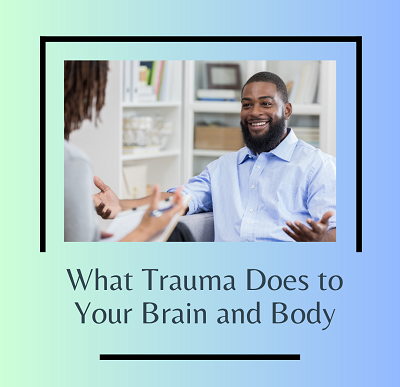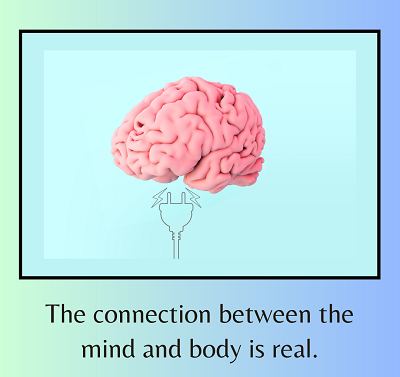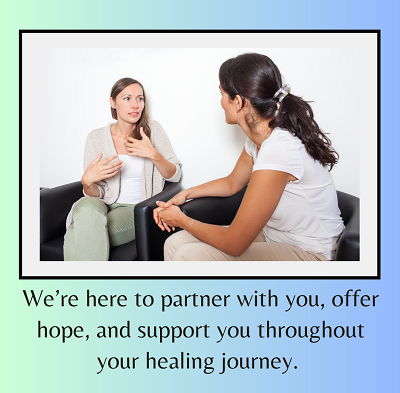The incident; you still remember every last detail. Even though it happened 15 years ago, you remember what you were wearing. A gray and black striped skirt. You’d had for quite a while, but got rid of it right after.
You remember how powerless it made you feel. You remember the tribal tattoo on the bicep of the deputy who responded to the call. He was kind and compassionate as everything seemed to fall apart.
Traumatic events exist in every size, shape, and form. As human beings, most (if not all) of us are exposed to trauma in our lifetime. Of course, the degrees to which it impacts us differs, depending on the event and our capacity to process it.
And some of the more severe trauma changes us – in more ways than we’re probably aware.
Many who experienced trauma wonder, why the flashbacks? Why the crippling anxiety? Why the seeming inability to move past the incident; why the overall decrease in quality of life?
The Mind-Body Connection
At this point, it comes as no surprise that the connection between the mind and body is real. From heartache to gut feelings, our thoughts lead to physical reactions in the body. For those who had to flee a climate disaster, say a California megafire had you scrambling to gather your essentials before evacuating. Now the smell of woodsmoke, which you used to associate with comfort and coziness, is terrifying. You catch a whiff now, and you’re immediately on edge.
When our brains sense danger – even if it’s a false alarm, something that reminds us of danger – it floods the body with adrenaline and cortisol. The intention is to get us moving, out of harm’s way, stat.
How Trauma Affects the Brain
Trauma affects three areas of the brain: the amygdala (responsible for emotions and instincts), the hippocampus (governs your memory), and the prefrontal cortex (regulates emotions and impulses).
When you’re thrust into a situation that reminds you somehow of a past traumatic event, your amygdala reacts as though it’s happening again. Your prefrontal cortex is suppressed, and the hippocampus gets mixed up, thinking the triggers are the traumatic situation occurring in real-time, and releasing stress hormones.
Unresolved trauma can lead to flashbacks, restlessness, and insomnia. Some find their enjoyment of life shrinking, and they may stop doing things they love, and stop “putting themselves out there” for fear of something bad happening again.
This can then into anxiety and/or depression.
Neuroimaging shows differences in brain activity of those with significant cases of PTSD, for example the hippocampus volume is smaller, and there appears to be a decrease in gray matter density. In addition both neural circuits and brain regions are impacted, and the neurochemical systems become dysregulated.
How Trauma Affects the Body
Flashbacks, or situations that bear a slight resemblance to the traumatic event, cause an increased heart rate. There’s a flood of panic; thoughts seem to be in all caps with tons of exclamation points. You may begin to physically shake, you may feel the urge to flee, but also an overwhelming impulse to not move at all.
Over time, unresolved trauma can lead to lethargy, feeling unmotivated, and sedentary. This usually exacerbates symptoms and comes with a host of other physical ailments.
How to Heal from Trauma
One of the challenges associated with healing, especially when depression and anxiety symptoms are present, is a lack of motivation to do anything, and a feeling of overall hopelessness.
While burdensome and sometimes crippling, these feelings are simply feelings. When you begin your healing journey, you will start to build inertia. This momentum will build, slowly but steadily.
Therapy is the best way to heal. Depending on where you live, search for a ‘therapist near me.’ Preferably, you want to see someone who has a lot of experience with or focuses specifically on, treating PTSD.
The Relationship Therapy Center specializes in treating trauma in Roseville, Ca. We also have a clinic in Fair Oaks where we help both teens and adults heal from trauma and other difficulties. Give us a call or text.
We’re here to partner with you, offer hope, and support you throughout your healing journey.
Begin Trauma Therapy in the Sacramento Area or Online:
Are you ready to find peace and healing after trauma? Our team is here to support you and provide high-quality evidence-based trauma treatment to people in the Sacramento Area and online for people living in the state of California. To begin trauma therapy in Fair Oaks, CA, or Roseville, CA, please follow these steps:
-
Reach out to our relationship therapy clinic for a free 20-minute phone consultation to learn more about trauma therapy,
-
Meet with one of our compassionate trauma therapists.
-
Begin trauma treatment and regain control in your life.
Other Services offered at The Relationship Therapy Center in California:
In addition to trauma therapy, Our Sacramento area counseling clinics located in Roseville and Fair Oaks, CA are pleased to offer a variety of mental health services. Our couples services include: Couples Counseling, Counseling after infidelity, sex therapy, co-parent counseling, family therapy, divorce counseling, intensive couples retreats, and premarital counseling. Our individual therapy services include anxiety treatment, therapy for children, teen therapy, depression treatment, codependency counseling and individual relationship counseling. Our therapists offer online counseling in California to treat a variety of mental health concerns. Please reach out to our Sacramento area therapy office to learn more about the many ways we can help you or your loved ones.



